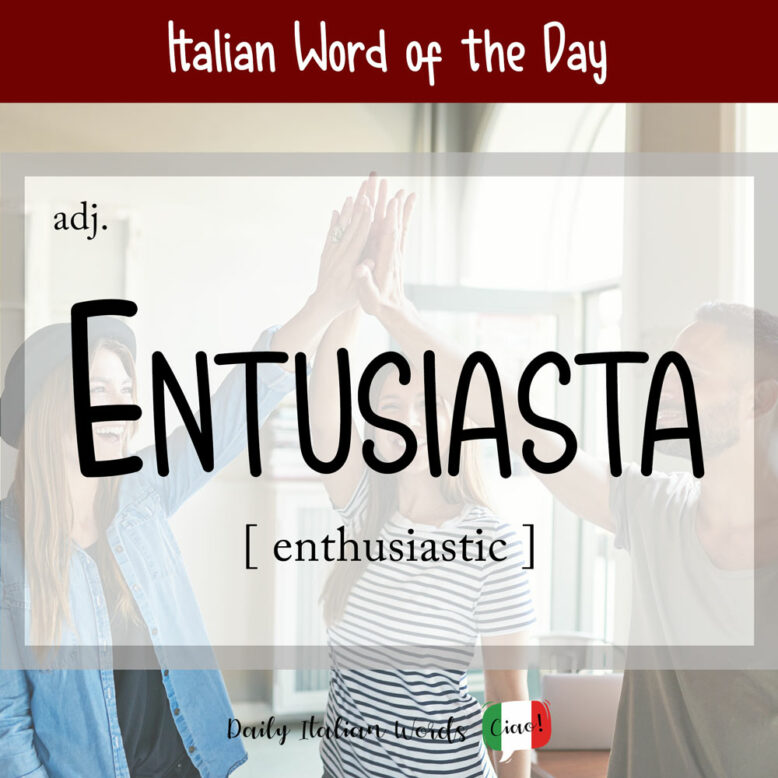An interesting adjective in Italian is entusiasta which, given its resemblance to the English, you might have guessed means enthusiastic.

Unlike many other Italian adjectives, which have a masculine form ending in -o and a feminine form ending in -a, the final letter of entusiasta does not change according to the gender. So, for example, you would say un uomo entusiasta (an enthusiastic man) and una donna entusiasta (an enthusiastic woman), not un uomo entusiasto.
In their respective plural forms, however, the ending does change according to gender. This means that enthusiastic men would be uomini entusiasti (with the ending -i) whereas enthusiastic women would be donne entusiaste (with the ending -e).

Entusiasta is generally followed by one of two prepositions when it doesn’t modify a noun: per (for) or di (of). Possible translations of essere entusiasta per / di include:
- to be enthusiastic about >> essere entusiasta del nuovo progetto (to be enthusiastic about the new project)
- to be excited to >> essere entusiasta di andare (to be excited to go)
- to be thrilled with >> essere entusiasta per il risultato (to be thrilled with the result)
- to be passionate about >> essere entusiasta per la musica rock (to be passionate about rock music)
Il critico è molto entusiasta del nuovo film.
The critic is very enthusiastic about the new film.
To be overenthusiastic is to be troppo entusiasta (too enthusiastic) or eccessivamente entusiasta (excessively enthusiastic).
As is the case with many adjectives, it can also function as a noun to describe someone who is an enthusiast, aficionado or buff.
Laura è un’entusiasta della musica classica.
Laura is a classical music buff.
Heather Broster is a graduate with honours in linguistics from the University of Western Ontario. She is an aspiring polyglot, proficient in English and Italian, as well as Japanese, Welsh, and French to varying degrees of fluency. Originally from Toronto, Heather has resided in various countries, notably Italy for a period of six years. Her primary focus lies in the fields of language acquisition, education, and bilingual instruction.


